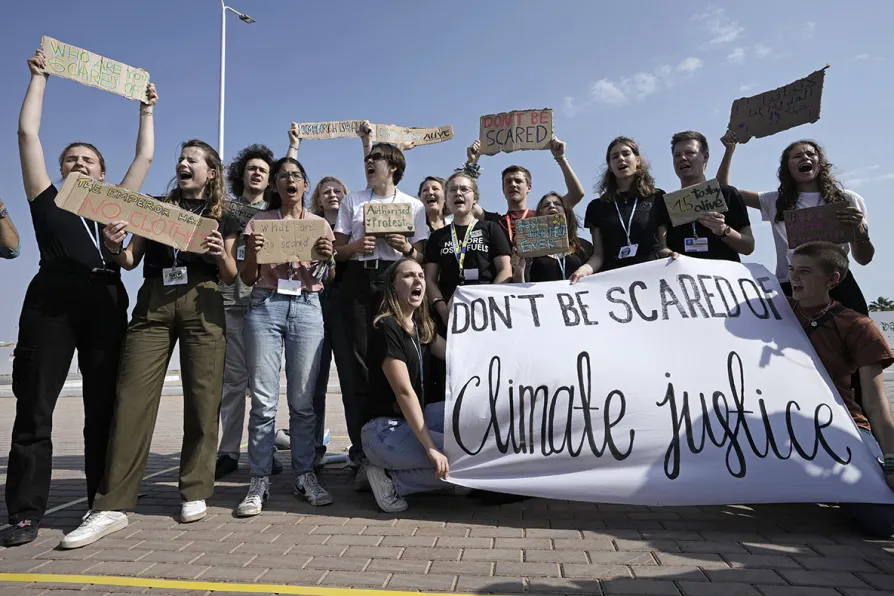
 Climate activists participate in a demonstration at the designated protest zone for the Cop27 UN Climate Summit, Tuesday, November 15, 2022, in Sharm el-Sheikh, Egypt
Climate activists participate in a demonstration at the designated protest zone for the Cop27 UN Climate Summit, Tuesday, November 15, 2022, in Sharm el-Sheikh, Egypt
AS THE Cop27 global climate conference began its second week in Sharm el-Sheikh, Egypt, on Monday, a new funding initiative to help poorer nations cope with the effects of climate change was launched by G7 nations.
Dubbed the Global Shield, the new mechanism is backed by the V20 group of climate-vulnerable nations and will initially receive more than $206 million (£173m) in funding.
At Cop27, the issue of loss and damage appeared on the agenda of a United Nations climate conference for the first time.

As the Alliance of Sahel States and southern African nations advance pan-African goals, the African Union must listen and learn rather than parroting the Western line on these positive developments, writes ROGER McKENZIE

Money makers already exploit cleaning and catering contracts while the military-industrial complex diverts billions from health to warfare — but Bevan’s vision will endure as long as people fight for it, writes ROGER MCKENZIE
















